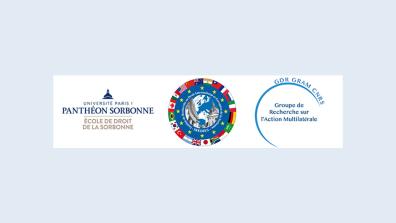Study day "Reform of/in international institutions", November 15, 2021
Menu Research

At the first commemoration of the "International Day for Multilateralism and Diplomacy for Peace", held in April 2019 at the United Nations General Assembly, some sixty delegations stressed the need to reform international institutions (particularly those of the United Nations) to breathe new life into multilateralism, which is being severely tested by the proliferation of global crises (ecological, health, etc.), the persistence of long-term conflicts and the assertion of unilateral dynamics carried by certain member states, including among the founders of the post-war multilateral system.In this context, the general question arises as to the scope of the current discourse on the reform of international institutions. From the antiphon of UN Security Council reform to the partial transformation of the governance of international financial institutions, there are many attempts and calls to transform international organizations. Yet this discourse is neither recent nor entirely new; it goes back - at least - to the establishment of the League of Nations.
Counter to a vision that often too quickly enshrines both the ineffectiveness and the limited or unaccomplished nature of these transformations, it is important to (re)evaluate the reforms that are working these institutions in the light of the diversity of temporalities (incremental vs. ruptures), impetus dynamics (intergovernmental negotiations, "internal" bureaucratic impulses, stakeholder lobbying and/or "exogenous shocks") and reform perimeters (political/technical, organizational, operational, etc.).
In continuitý of the work and lines of research developed by the Groupe de Recherche sur l'Action Multilatérale, this study day brings together various social science disciplines (anthropology, law, economics, history, political science, sociology, management and administration) as well as "practitioners" of international institutions (multilateral diplomats, agents of international organizations, coalitions and non-governmental organizations) around the following three thematic axes and questionings:
- Axis 1: the times of reform
- Axis 2: change with or without reform
- Axis 3: is reform of international institutions possible?
Registration and circulation
Due to sanitary constraints, the room's maximum capacity is set at 100 people. Access will also be subject to prior registration.
To enable as many people as possible to follow and take part in this event, a videoconferencing facility will be set up.
Day program
9:15 am - Welcome of participants.s
9h40 - Introduction
- Delphine Allès, Professor of Political Science at Inalco and member of the GRAM Board of Directors
- Franck Petiteville, Professor of Political Science at Sciences Po Grenoble and member of the GRAM Board of Directors
10h - Axe n°1 : Les temps des réformes
Chair: Delphine Placidi-Frot, Professor of Political Science at the University of Paris-Saclay
- "The metamorphoses of the Danube Commission"
Carmen Achimescu, Assistant Professor at the Faculty of Law, University of Bucharest
Ion Galea, Professor at the Faculty of Law, University of Bucharest
- "The reform of the African Union: contribution à une analyse sociologique des mutations du système international africain"
Louis Paul Ongono, PhD student at the University of Douala
- "European oil dependence and the redefinition of NATO's international role, 1979-1983"
Manuel Dorion-Soulié, Visiting Scholar at the Faculty of History, University of Cambridge
- "Reform in a hurry: the example of the IMF"
Lena Chercheneff, Senior Lecturer in Public Law at Université Paris 1 Panthéon-Sorbonne
12pm - Lunch break
2pm - Axe n°2: Change with or without reform
Chair: Delphine Allès, Professor of Political Science at Inalco
- "The changing working methods of the United Nations Security Council. A case of 'discreet reform'? "
Matthieu Ruquet, PhD student in public law at Université Paris 1 Panthéon-Sorbonne
- "Revitalization without reform: the consequences of China's massive involvement in international technical standardization bodies since 2008"
Juliette Genevaz, Senior lecturer in political science at Université Lyon 3
- "Bureaucratize for better reform? Analyse des comités techniques de réforme des institutions internationales africaines"
Eugene Arnaud Yombo Sembe, Postdoctoral Fellow at the University of Cape Town
- "The reform of international organizations through the stakeholder model: new issues of transnational contestation. "
Auriane Guilbaud, Senior Lecturer in Political Science at the University of Paris 8
4pm - Break
4:20pm - Axis #3: Is the reform of international institutions possible?
Chair: Evelyne Lagrange, Professor of Public Law at the University of Paris 1 Panthéon-Sorbonne
- "Reform between headquarters and the field: the case of UN Women"
Marie Saiget, Senior Lecturer in Political Science at the University of Lille 2
Simon Tordjman, Senior Lecturer in Political Science at Sciences Po Toulouse
- "What international organizations can do: the case of the ILO"
Sandrine Kott, Professor of Contemporary History at the University of Geneva and Visiting Professor at New York University
- "UNESCO: how to transform without changing anything"
Véra El Khoury Lacoeuilhe, Minister, Permanent Delegation of Saint Lucia to UNESCO and Vice-Chairman, UNESCO Executive Board
17:40 - Concluding remarks
Frédéric Ramel, Professor of Political Science at Sciences Po (and coordinator of GRAM)
